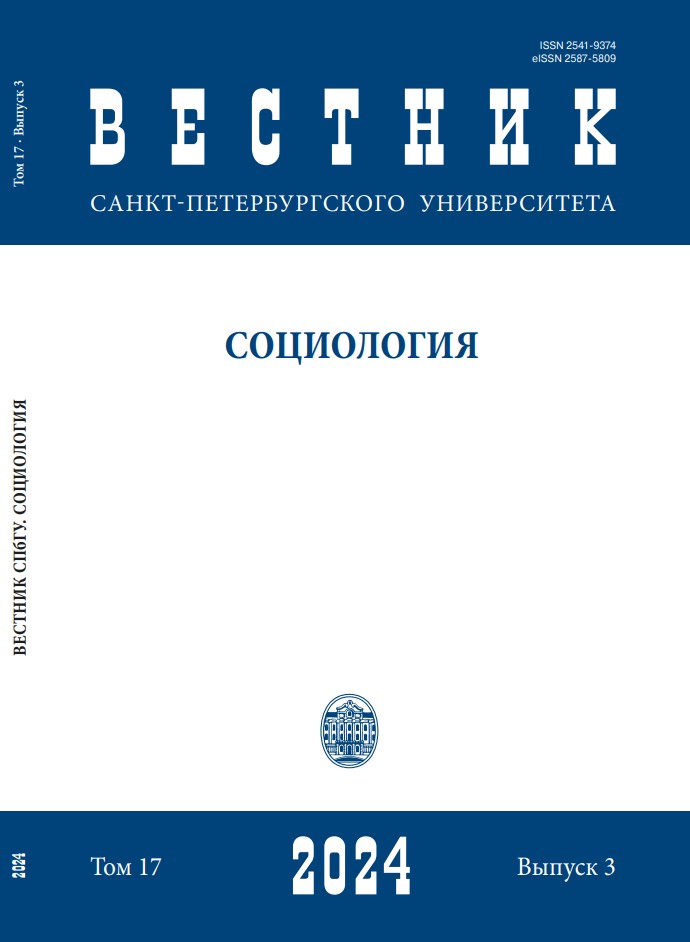The value core of the consolidation of the peoples of Russia and Kyrgyzstan: A sociological assessment
DOI:
https://doi.org/10.21638/spbu12.2024.301Abstract
After the collapse of the Soviet Union, Russia and Kyrgyzstan have consistently been working together to bring the countries of lesser Eurasia closer together. However, further deepening of integration is determined by strengthening the unity of the peoples’ value aspirations on strategically important issues of socio-political and economic development of the Union, ensuring its internal and international security. Taking into account the mobile nature of human values during the period of instability and radical changes experienced by countries in the last 35 years, the implementation of liberal democratic social and humanitarian programs by the collective West in almost all post-Soviet republics, and especially in Kyrgyzstan, the need to comprehend the personal values of Russians and Kyrgyzstanis is emerging. The aim of the research is based on the analysis of the results of a sociological study of the personal values of the population of the years. Moscow and Bishkek, as leaders of the evaluative-value attitude to the social reality of modern Russia and Kyrgyzstan, identify the hierarchy of values, substantiate the value core of the consolidation of the peoples of these countries in the face of new risks and challenges. The methodological strategy of the study includes work with documents and a quantitative survey of the permanent population of Moscow and Bishkek. The article, based on the work of Russian and foreign scientists, presents a theoretical framework for measuring the values of the peoples of Russia and Kyrgyzstan, assesses the current value systems of individuals, the value profile of various groups, reflects their understanding of the essence, goals of society and means of achieving them, their compliance with ensuring the consolidation of societies, the possibilities of forming a value consensus on this basis, substantiates the value foundations of the consolidation of the peoples of Russia and Kyrgyzstan.
Keywords:
personal values, core of values, consolidation, Eurasian Economic Union
Downloads
References
Downloads
Published
How to Cite
Issue
Section
License
Articles of "Vestnik of Saint Petersburg University. Sociology" are open access distributed under the terms of the License Agreement with Saint Petersburg State University, which permits to the authors unrestricted distribution and self-archiving free of charge.




